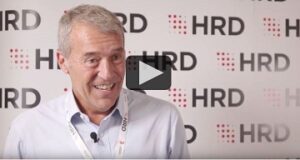Employment in the UK reaches a new high, however productivity worsens
- 5 Min Read
The Office of National Statistics has found that the unemployment rate in the UK as drastically improved. However, unfortunately, productivity has proven to still remain a challenge for HR professionals to overcome.
- Author: Louron Pratt
- Date published: Feb 19, 2019
- Categories

The Office of National Statistics (ONS) recently released their February report detailing significant updates to employment and productivity in the UK. From this report, one of the main positive takeaways was that an estimated 32.60 million people are working, which is 444,000 more than for a year before. Because of this high number of people in jobs, this means that the unemployment rate has decreased slightly, which is now sitting at 4.0%, it has not been lower since December 1974 to February 1975.
 Ben Frost, Solution Architect EMEA at Korn Ferry commented on these new findings, saying “Today’s ONS employment stats have once again confirmed strong employment growth up and down the country, which is great news for companies and employees. The challenge, however, remains in competing for the right staff with the right skills.” With digital disruptions changing the world of work. There are many more skills that will be needed in the future, so ensuring that a workforce is equipped with the right skills and are constantly learning is imperative to a business growing in today’s age.
Ben Frost, Solution Architect EMEA at Korn Ferry commented on these new findings, saying “Today’s ONS employment stats have once again confirmed strong employment growth up and down the country, which is great news for companies and employees. The challenge, however, remains in competing for the right staff with the right skills.” With digital disruptions changing the world of work. There are many more skills that will be needed in the future, so ensuring that a workforce is equipped with the right skills and are constantly learning is imperative to a business growing in today’s age.
Ben went on to discuss the rewards and benefits culture, and how companies can adapt to this if they do not have the financial backing, saying “Not all businesses are in the financial position to offer monetary rewards to attract and retain top talent. However, for the most part, employees’ expectations have begun to shift and so money is no longer necessarily the most effective way of rewarding staff or appealing to new talent.”
He finished by talking about additional perks and staff benefits that organisations can consider looking into “Companies need to look at benefits beyond financial incentives in order to attract the best talent. From flexible working schemes for a better work-life balance to robust career development programmes and creative working environments, employers need to communicate the benefits associated with their brand.”
In addition to this, Jason Fowler, Vice President, HR Director, UK & Ireland shared his thoughts on what this means for HR professionals “With more people moving into employment the challenge for HR departments is to make sure they attract and select candidates that are best suited for each role. Recruitment and talent acquisition has always been about people, and in the digital age, this firmly remains the case. But with competition for talent rife, personalised communication is fast becoming at the heart of talent acquisition. Rather than blasting out mass emails and calls without understanding potential candidates, a personalised approach to recruitment ensures we are able to properly foster and develop a relationship with potential candidates through each recruitment touchpoint – from first contact all the way through to when a potential candidate is hired.”
With technology increasingly having more of an impact in the world of work, Jason also discussed how this can significantly aid the talent acquisition process “In recent years, technology has become a useful tool for helping talent acquisition professionals maintain this level of engagement throughout the entire recruitment process. Whether this is through personalised onboarding videos, ATS tools or customised follow-ups, there are many ways technology can support talent acquisition departments with providing a personal level of service.”
ONS also investigated the productivity rate in the UK. Which seemed to have worsened. ‘Output per hour’ which is the main source of measuring productivity in the office was estimated to have decreased by 0.2%, and as a whole for the past year, UK productivity has been proven to be weaker than previous years.
Adrienne Gormley, VP of Global Customer Experience & Head of EMEA at Dropbox commented on these recent findings, saying “The answer to how we can be more productive at work does not lie in simply being more connected and stuffing more into the hours available. We have found ourselves racing around from morning ‘til night, working every minute and attempting to squeeze as much as we can out of a day, we simply cannot just “be more productive”.
She went on to discuss ways in which employers can combat this, saying “In short – we need to be working smarter, not working more. We need to reduce the time spent on doing ‘work about work’ – this is all the mundane and bureaucratic work that we do to manage our actual work – which is stopping us from being our most productive selves. People are an organisations’ greatest asset and the world’s biggest problems are going to take human ingenuity to solve: better teamwork, better collaboration, and better problem-solving – all of which adds up to the need for a culture which gives employees headspace to do their best work.”
For more information on these insights and research, take a look at the full findings here:
https://www.ons.gov.uk/employmentandlabourmarket/peopleinwork/employmentandemployeetypes/bulletins/uklabourmarket/february2019#toc
https://www.ons.gov.uk/economy/economicoutputandproductivity/productivitymeasures/articles/gdpandthelabourmarket/octobertodecember2018





